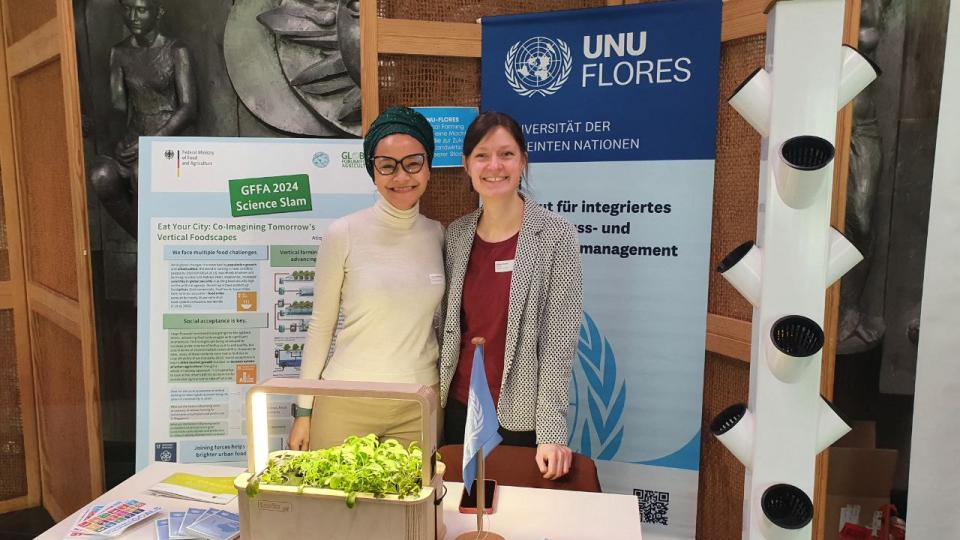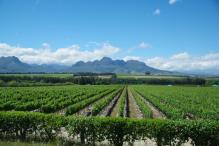
Atiqah Fairuz Salleh and Juliane Dziumla, doctoral researchers at UNU-FLORES, received the eku Future Prize to conduct a feasibility study on vertical farming in Dresden. Their research aims to uncover the barriers and drivers influencing urban vertical farming development, paving the way for sustainable agricultural practices in urban landscapes. By examining factors such as economic viability, technological advancements, policy frameworks, and societal acceptance, their study seeks to provide valuable insights into the practical implementation of vertical farming initiatives. Through this comprehensive analysis, Dziumla and Salleh hope to facilitate the adoption of vertical farming as a viable solution to food production challenges in urban environments.
With a growing global population and the escalating impacts of climate change, the necessity for innovative agricultural approaches like vertical farming has become increasingly apparent. By 2050, the world's population is projected to reach 9.7 billion, placing immense pressure on traditional farming methods to meet rising food demands. Additionally, climate change is exacerbating environmental challenges, including erratic weather patterns and diminishing arable land. Considering these issues, vertical farming emerges as a vital solution, offering resource-saving alternatives to conventional agriculture.
Vertical farming hasn't taken off in Germany yet, and we're eager to discover why. Our research aims to uncover the obstacles holding it back. Understanding these challenges will help us develop solutions and make vertical farming a viable option for sustainable agriculture in Germany.
This year, SMEKUL announced a call for the "eku Future Prize for Energy, Climate, Environment in Saxony" in two categories: eku idee and eku erfolg. In the eku idee category, the Ministry invited local civil society actors, students, young professionals, municipalities, institutions, and others to submit proposals dedicated to biodiversity conservation, resource preservation, regional value creation, water revitalisation, energy efficiency, as well as climate protection and adaptation.
In Chemnitz, State Minister for Minister for Energy, Climate Protection, Environment and Agriculture Wolfram Günther presented the award for their idea of exploring sustainable initiatives in Saxony, guided by the principles of the Resource Nexus Approach.


